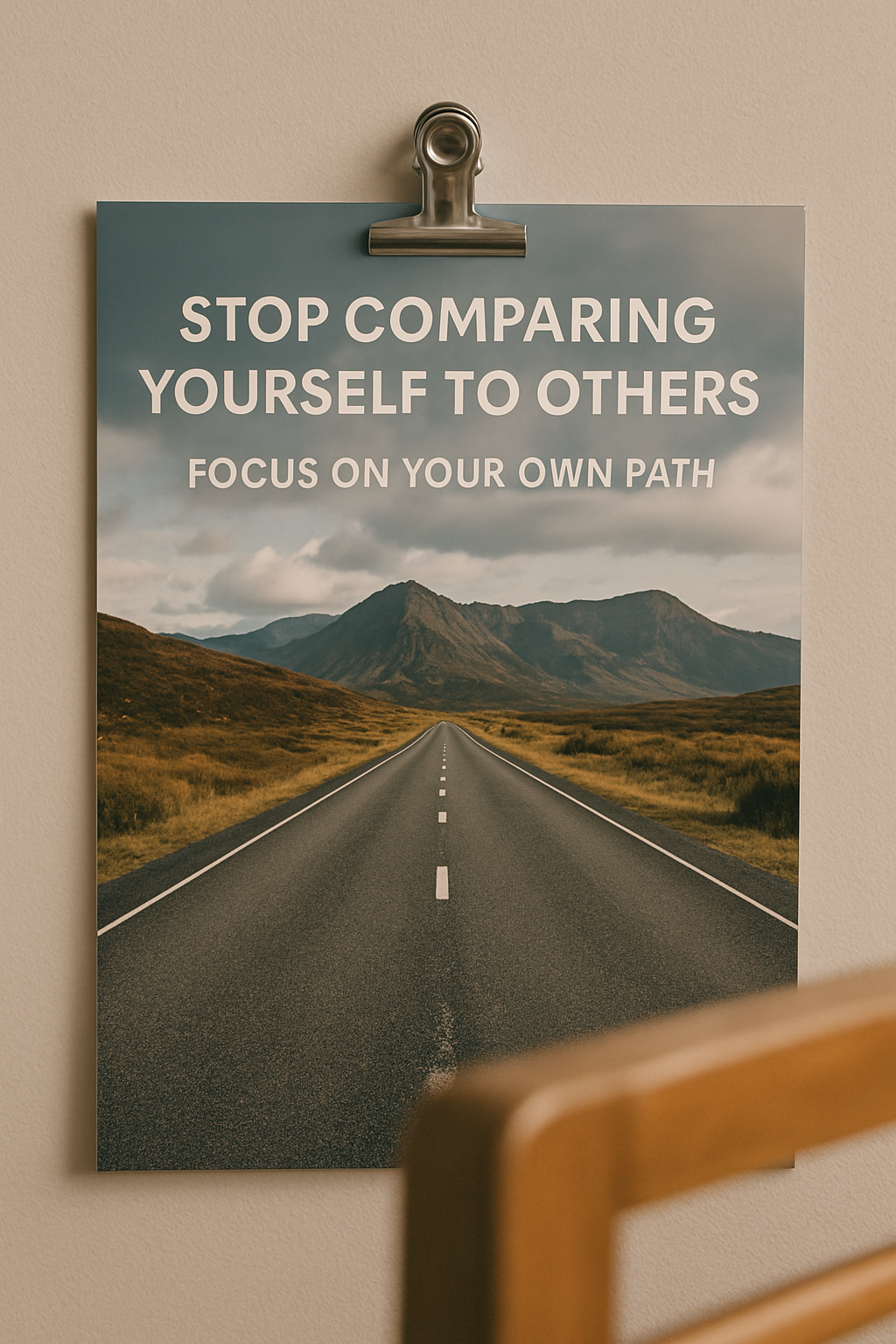Comparison is natural—but when it becomes constant, it steals your joy, confidence, and clarity. In a world of social media, curated highlight reels, and endless opinions, it’s easy to feel like you’re always falling behind.
The truth is: you don’t need to be like anyone else to be successful, fulfilled, or enough. In this article, you’ll learn how to stop comparing yourself to others, and how to reconnect with your unique path and purpose.
Why Comparison Is So Tempting (and So Harmful)
It’s human to compare. Your brain does it automatically, scanning your environment for cues about status, safety, and belonging.
But frequent comparison leads to:
- Low self-esteem
- Impostor syndrome
- Anxiety and overthinking
- Envy and resentment
- Feeling stuck or inadequate
Comparison disconnects you from your own truth by making someone else’s life the standard.
1. Become Aware of Your Comparison Triggers
Start by noticing when and where comparison shows up:
- Scrolling on Instagram or LinkedIn?
- After talking to a certain person?
- When you’re tired or stressed?
- After a setback or failure?
Knowing your triggers helps you interrupt the cycle before it steals your energy.
2. Shift From Comparison to Curiosity
Instead of thinking, “Why are they ahead of me?” try asking:
- “What can I learn from them?”
- “What part of their success inspires me?”
- “How can I use this feeling as motivation?”
Curiosity turns jealousy into growth—and removes the shame.
3. Limit Social Media (or Change How You Use It)
Social media often shows filtered realities, not the full story. If it’s fueling comparison:
- Take a break from certain platforms
- Unfollow accounts that trigger insecurity
- Follow creators who inspire or uplift you
- Set time limits on apps
Use social media consciously—not compulsively.
4. Reconnect With Your Own Values
Comparison happens when you lose sight of your own direction.
Ask yourself:
- What matters most to me right now?
- What does success look like for me?
- What kind of life am I trying to build?
When your actions reflect your values, you stop needing outside validation.
5. Track Your Progress, Not Someone Else’s
Measure growth based on where you started—not where someone else is.
Try:
- Journaling your weekly wins
- Creating a “before and after” photo or note
- Reflecting on how your mindset or skills have evolved
Your journey is valid—even if it looks nothing like someone else’s.
6. Remind Yourself: Everyone Has Their Own Timeline
Some people find success at 20. Others at 60. Some heal quickly. Others take years. There is no deadline for personal growth, healing, or achievement.
Your timeline is yours. Trust it.
7. Practice Gratitude for Your Path
Comparison is rooted in scarcity. Gratitude reminds you of abundance.
Each day, list 3 things you’re proud of or thankful for. Include:
- Challenges you’ve overcome
- Lessons you’ve learned
- Strengths that are uniquely yours
You are growing in ways others can’t see—and that’s worth celebrating.
8. Be Kind to Yourself in Moments of Doubt
When comparison creeps in, respond with self-compassion:
- “It’s okay to feel this way, but I’m doing my best.”
- “Their path is not mine—and that’s okay.”
- “I’m allowed to move at my own pace.”
You don’t need to be better than others. You only need to be true to yourself.
Stay Focused on Your Lane
Imagine running a race with your eyes on the person next to you—you’d trip. But when you focus on your own lane, your stride becomes stronger, your pace steadier, your direction clearer.
Here’s how to start today:
- Notice one comparison thought
- Reframe it with curiosity or compassion
- Write down one thing you’re proud of this week
Your path is unfolding in the exact way it needs to. Trust it. Honor it. Keep going.
